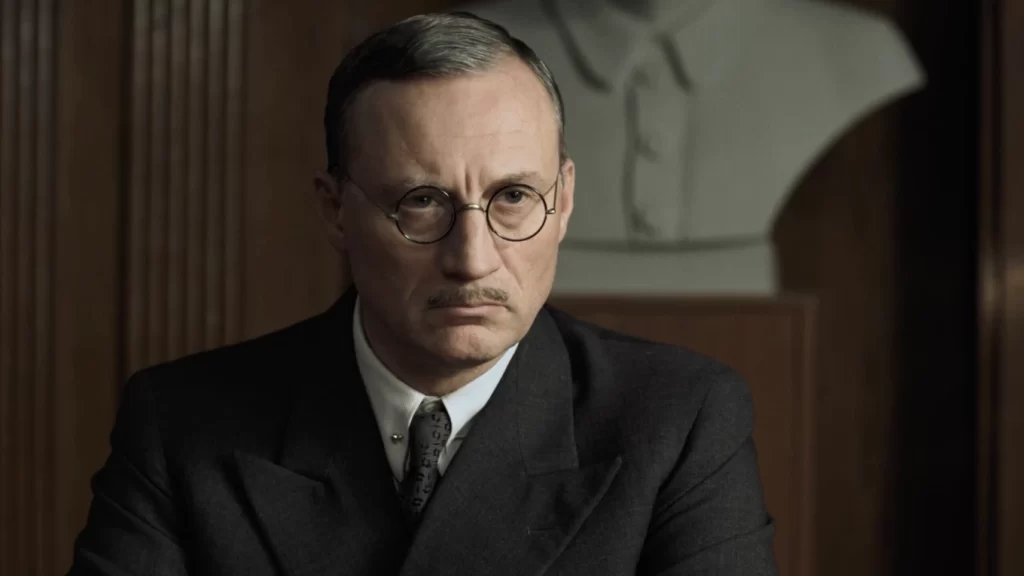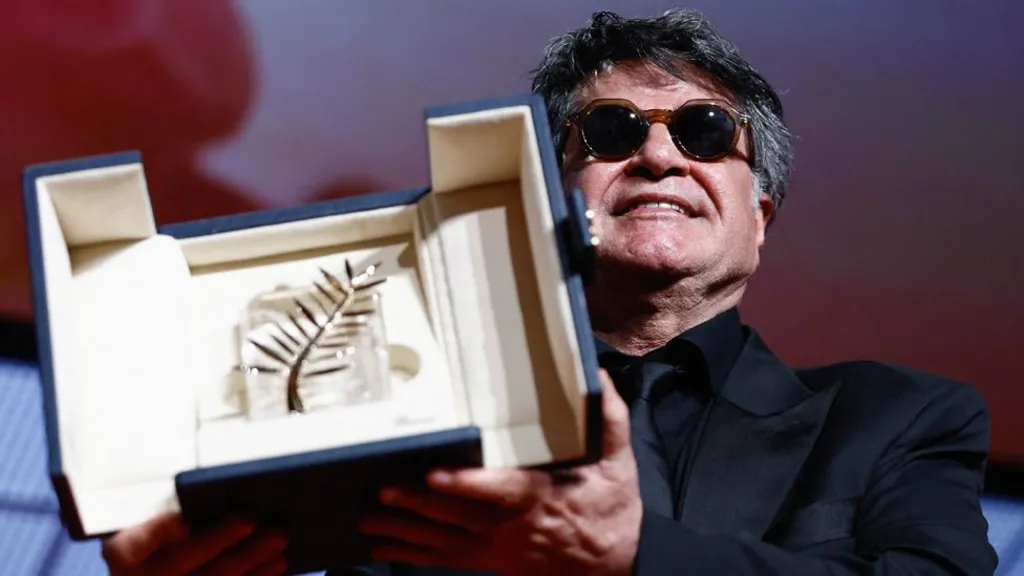
The 78th Cannes Film Festival wrapped with a thunderclap on May 24, capping nearly two weeks of cinematic premieres and the enduring allure of la Croisette. While Jafar Panahi’s It Was Just an Accident took home the coveted Palme d’Or, the most critically lauded film of the festival was without question Sergei Loznitsa’s Two Prosecutors — a chilling Soviet-era fiction drama that cemented Loznitsa’s return to narrative filmmaking as the defining artistic statement of Cannes 2025.
Premiering in the main competition, Two Prosecutors captivated critics with its austere visual precision and moral gravity. Based on a novella by Gulag survivor Georgy Demidov, the film follows idealistic prosecutor Alexander Kornyev (Aleksandr Kuznetsov) as he attempts to investigate a plea for help — a letter scrawled in blood — from a tortured prisoner in 1937 Stalinist Russia. His pursuit of justice soon spirals into a harrowing descent through the NKVD’s labyrinthine machinery, where ethics dissolve into complicity.
Loznitsa, long revered for his incisive documentary work, returns to fiction with controlled fury. Shot in a decommissioned prison in Riga, the film’s production is steeped in historical texture. Cinematographer Oleg Mutu (4 Months, 3 Weeks and 2 Days) paints a palette of greys and browns that render every corridor and office into mausoleums of dead ideology. Editor Danielius Kokanauskis crafts a suffocating rhythm that mirrors the psychological inertia of a society gripped by fear.
Kuznetsov delivers a performance of remarkable restraint, gradually giving way to moral and psychological disintegration. Anatoliy Beliy — in his most striking role since Quarantine (2021) — plays a senior Moscow official with unnerving calm, his bureaucratic platitudes more lethal than overt threats.
Winner of the François Chalais Prize — awarded to films that best reflect the values of journalism and human dignity — Two Prosecutors was the overwhelming favorite among critics and a strong early contender for the Palme. Though it ultimately didn’t take the top prize, it emerged as the film of the festival: a precise, glacial dissection of complicity — and the bureaucratic silences that enable state violence. “You see the same logic repeating today,” Loznitsa remarked during the post-screening Q&A, referencing not just Stalinist terror, but modern-day authoritarian regimes — including Russia under Vladimir Putin.

The Palme d’Or ultimately went to Iranian auteur Jafar Panahi for It Was Just an Accident, a tightly wound thriller about a vehicular accident and spiraling revenge. The award marked a career high for Panahi, who has long been banned from traveling and filmmaking by Iranian authorities. First arrested in 2010 and sentenced to six years in prison and a 20-year ban, Panahi has continued to work under extraordinary restrictions. His surprise appearance on stage at the Grand Théâtre Lumière drew a thunderous, minutes-long standing ovation.
“In a way, I’m not the one who made this film. It’s the Islamic Republic that made this film, because they put me in prison,” Panahi told The Hollywood Reporter in an exclusive interview ahead of the premiere. “Maybe once they see this film, they will realize they shouldn’t put artists in prison… maybe if they want to stop us being so subversive, they should stop putting us in jail.”
The main competition jury was presided over by actress Juliette Binoche.
Cannes 2025 unfolded against a backdrop of global unrest. A moving tribute was held for Fatima Hassouna, the Palestinian photojournalist killed during a recent airstrike in Gaza. More than 350 filmmakers — including Pedro Almodóvar, Alice Rohrwacher, and Aki Kaurismäki — signed an open letter calling for a ceasefire and demanding humanitarian access and justice for victims. Though the red carpet still glittered, the festival carried a pronounced undercurrent of protest and solidarity.
On closing night, a brief power outage — suspected to be a localized act of sabotage — plunged the Palais into darkness for several minutes. Screenings resumed swiftly thanks to backup systems, but the incident added an unintentional cinematic twist to an already charged edition.The Un Certain Regard sidebar spotlighted daring new voices, including The Mysterious Gaze of the Flamingo, a surreal Chilean fable of state paranoia and queer resistance, and Once Upon a Time in Gaza, a quietly devastating hybrid docudrama set in a sealed-off city, praised for its humanistic urgency. Iraqi filmmaker Hasan Hadi took home the Caméra d’Or for The President’s Cake, a bittersweet postwar satire that blends absurdist humor with quiet political insight.The Short Film Palme d’Or was awarded to I’m Glad You’re Dead Now by Tawfeek Barhom, a lacerating portrait of abuse, grief, and generational trauma that left audiences in stunned silence.
In the film market, buyers were active. Neon, Mubi, and MK2 secured several high-profile titles, with It Was Just an Accident, Sound of Falling, Sentimental Value, and The Secret Agent already expected to dominate the fall awards-season conversation.
The fashion lived up to expectations — Kristen Stewart stunned in an ethereal Chanel suit, while Pedro Pascal, Jodie Foster, Alexander Skarsgård, and Angelina delivered some of the week’s most talked-about looks. But for once, the headlines weren’t about hemlines. This year, Cannes was defined less by couture and more by conscience.
In a year when cinema collided with censorship, exile, and war, Cannes 2025 reminded the world why this festival matters — not only as cinema’s most glamorous launchpad, but also as a vital forum where the cultural and political pulse of the world is felt, debated, and projected in 24 frames per second.
Top Winners
- Palme d’Or: It Was Just an Accident (Jafar Panahi)
- Grand Prix: Sentimental Value (Joachim Trier)
- Best Director: Kleber Mendonça Filho (The Secret Agent)
- Best Actor: Wagner Moura (The Secret Agent)
- Best Actress: Nadia Melliti (The Little Sister)
- Best Screenplay: Jean-Pierre & Luc Dardenne (Young Mothers)
- Jury Prize (tie): Sirât (Oliver Laxe) & Sound of Falling (Mascha Schilinski)
- Un Certain Regard Award: Once Upon a Time in Gaza
- Caméra d’Or (Best First Feature): The President’s Cake (Hasan Hadi)
- Short Film Palme d’Or: I’m Glad You’re Dead Now (Tawfeek Barhom)
- François Chalais Prize: Two Prosecutors (Sergei Loznitsa)
